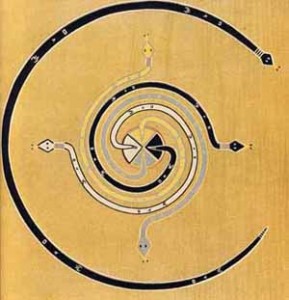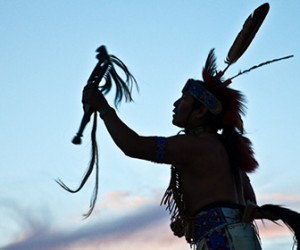In the Western world, most people perceive time as a linear thing. Milestones are anticipated, passed, and once they are passed, they are finished. We are born, we live and we die. In that order. And once we die, we are gone. But not all cultures agree. Many Native American cultures perceive time as being circular, rather than linear. There are no definite beginnings or endings, only what is, what always has been, and what always will be.
What if death isn’t the end, but simply another milestone on the timeline of life? Rather than imagining life as a line, what if we imagined it as a spiral? Many Native American tribes do not see death as an absolute, but instead they see life as an infinite journey where death is not the end. Death is appreciated as a passage to the next world: the next step in life.
Although there are several hundred different Native American tribes, many of which have different beliefs, almost all tribes hold this perception of time as being circular. Many tribes believe in reincarnation, and that the soul is an eternal presence that moves from body to body without ever leaving the world. Others believe that when a loved one dies, their soul is transported to the next world where they join their ancestors who passed before them. This different perspective allows the Native American people to view death not with grief, but with acceptance and happiness. Moving from this world to the next is not something to be mourned, but rather it is something to be celebrated. Death is nothing more than a stepping stone to the next life.

 Native American Beliefs About Time and Death
Native American Beliefs About Time and Death




 How Dare You Die Now!
How Dare You Die Now!
 Debating Medical Aid in Dying
Debating Medical Aid in Dying
 “Help Me, Helen”
“Help Me, Helen”














